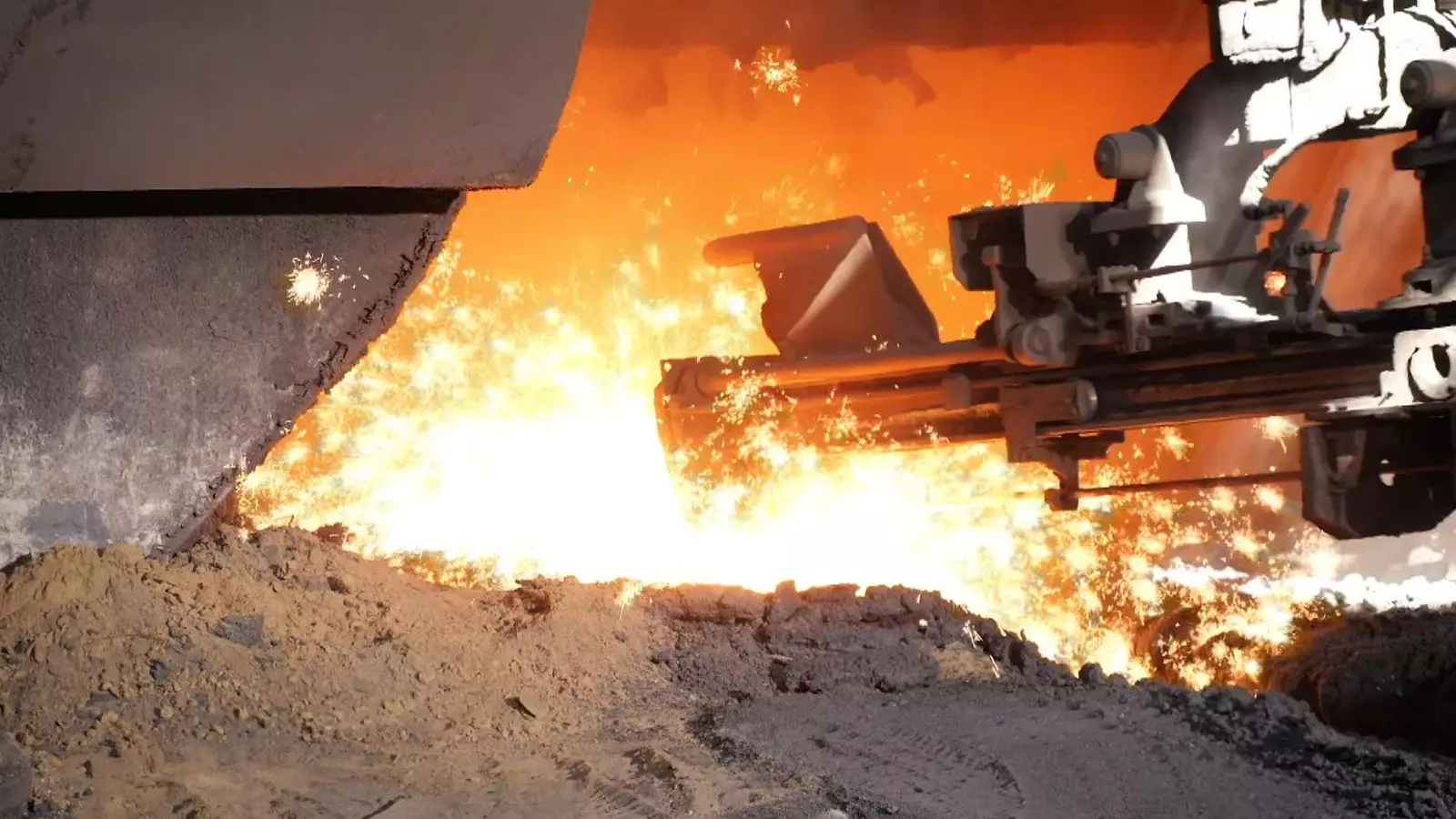In a shocking turn of events, the future of Britain’s steel industry hangs by a thread as the final remaining blast furnaces may soon go cold, signaling an end to an era. Jingye, the Chinese conglomerate that acquired British Steel in 2020, has ceased ordering essential raw materials—iron ore, coal, and more—lightly tossing aside the centuries-old tradition of steelmaking rooted in this country. Union representatives are sounding alarms, asserting that without these crucial ingredients, these blast furnaces could cease operations as early as next month, much sooner than previously anticipated. What we are witnessing is not just the closure of a factory; it’s the decay of industrial heritage, and the causation is strikingly clear: neglect and mismanagement by those who should be safeguarding these vital industries.
Government’s Uncertain Role
The British government now finds itself in a precarious position. Consideration of nationalization is on the table, a drastic measure agencies are hesitant to pursue. What a predicament. Officials fear taxpayer exposure to a loss-making venture, yet what could be more detrimental than allowing national resources to slip entirely from British hands? Given that British Steel is the primary supplier of steel rails to Network Rail and a pillar for countless construction projects, the cost of inaction could far outweigh that of potential losses. The situation is a testament to apathy toward a sector that many dismiss as yesterday’s news while it bears paramount importance in strategic infrastructure and national security.
A Trade War and Its Consequences
Complicating matters further is the toxic mix of a global trade war and concerted efforts to reduce carbon footprints, spearheaded by major players like Tata Steel. Jingye’s refusal of a £500 million public investment plan—an identical figure offered to Tata—has set a chilling precedent. One company is shifting to electric arc furnaces with significantly lower emissions, paving the way for a greener future, while another clings to archaic methods presumably for profit margins that no longer justify their existence. The disparity is troubling, revealing a crying need for strategic foresight and action.
What should have been a moment for proactive industrial strategy has devolved into a struggle for survival. Yet the pressing need to diversify our critical material supply chains has been compounded by a geopolitical shift, especially with Donald Trump’s push for isolationist policies. It’s astonishing how domestic and international politics influence our market reliability. Is this the kind of future we want? A future where we are left scrambling for inferior imports, detrimentally impacting our ability to innovate and maintain our infrastructure?
The Risk of Dependency
The decline of British Steel not only raises an alarm about national pride but also about our growing dependency on global markets. Dependency can be a double-edged sword, leaving us vulnerable to the whims of foreign suppliers and the covetous strategies of global competitors. The next chapter could see Britain stripped of its autonomy, relying entirely on external forces for its steel—a devastating prospect. It recalls a historical cycle of rising and falling industrial empires and underscores the dire need for political clarity, not murky negotiations and bureaucratic foot-dragging.
Gareth Stace, leading the UK Steel lobby, has openly criticized the government’s stagnant efforts to resolve this crisis. He rightly highlights that the interests of British workers and the foundational sectors they support are at stake. There’s an urgent need for clarity and decisive capacities from the government—strong leadership with a long-term vision that integrates industry, employment, and sustainable practices. A mere patchwork solution is not sufficient; we need bold policy reform and innovation that reinvigorates our manufacturing capabilities.
Forging a Resilient Future
The road ahead may be fraught with challenges, but it is not devoid of hope. History shows that problems can catalyze innovative solutions when the will to act exists. A panoply of funding strategies and partnerships could transform the UK’s steel landscape. We must invest in modern technology to revive the heart of our industry while ensuring environmental stewardship. This situation demands an alignment of economic pragmatism and ecological responsibility, moving beyond mere survival to reinvention and rejuvenation.
We stand at a critical juncture: Do we allow the flames of our steel legacy to die out, or do we harness the opportunity for a renaissance in manufacturing that honors both our industrial heritage and commitment to a sustainable future? With informed decision-making and a firm grasp on the socio-economic implications, the choice becomes less daunting. It’s not merely about steel; it’s about reclaiming a sense of national identity, security, and ingenuity.


Leave a Reply